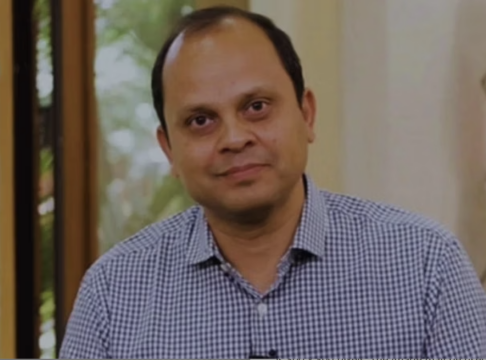From transforming business automation, education and instruction, data privacy guidelines, and healthcare services, artificial intelligence (AI) has posed reimagining processes across nearly every sector, forcing industries to adapt to technological advancements that the world had not witnessed since the dot-com bubble in the 2000s. And even then, the global adoption of AI has been deemed as the fastest technological surge in history.
New bold pronouncements about how AI will impact the global workforce emerge seemingly every day, from AI industry leaders or tech companies’ CEOs who assure that all jobs will become obsolete by 2030, that human skill will be massively outweighed by technological improvements, or that the imagined robot-powered era initially predicted in the late 18th century has finally come.
But although AI does pose inflation in short-term expectations—especially surrounding job disruption and automation—the real risk lies in underestimating AI’s long-term impact. In this context, it is especially imperative to consider what companies will look for in their employees in this new age.
It is from this fuller picture that Kryterion’s most recent book, AI and the Future of Work & Assessments emerges. Written by Dr. Leslie Thomas, Chief Psychometric Officer at Kryterion who also holds a Ph.D in Industrial and Organizational Psychology from Virginia Tech University, the book seeks to “help test sponsors and workforce leaders [to] rethink how we define readiness in the age of AI,” as per Thomas, while in conversation with Startup Beat.
AI is going to change not only the skills employers assess, but also how they assess them. “In the future, these exams will focus just as much—if not more—on a worker’s ability to effectively use AI to perform their job, than on traditional technical competence,” she further stressed.
Industries don’t all exist in a vacuum, but they also don’t respond uniformly to change. AI’s applications thus manifest in tailored ways, depending on the challenges and opportunities within each sector. For healthcare, for instance, this will translate to personalized medicine pathways and AI-driven drug discovery, while for finance and banking, algorithmic trading, fraud detection, and regulatory compliance checks will be most prevalent.
As a general rule, industries that have shown more digital integration, such as retail and technology, will face quicker change, while those with complicated regulatory frameworks and ethical considerations, like healthcare and legal services, will experience slower adoption curves, according to the book.
Regardless, Dr. Thomas signaled more universal transformative trends: “AI is leading organizations to deconstruct traditional, rigid roles into their component tasks. This allows for clear identification of opportunities for AI automation, augmentation, and tasks that remain primarily human-only.” Such a shift calls for a move away from static job roles and into more dynamic, task-based work.
Second, AI technical literacy has emerged as a critical component in the new AI age. While AI performs more traditional knowledge-based and technical work, “the ability for professionals to effectively use specific AI tools in their roles becomes paramount.”
Human-centric skills have also become more pressing, as skills that are difficult for AI to replicate are increasingly valued, from critical thinking and creativity to adaptability and communication.
And finally, credentialing requirements are increasingly adapting to this changing landscape. Modular credentialing, certifying rapidly changing job roles with a monolithic structure, will become less practical. “A more modular approach, such as micro-credentials, offers greater flexibility, allowing for easier updates, and enabling incremental recognition of skill sets,” Thomas noted.
“On the acceleration side, AI, especially generative AI (GenAI), offers exciting opportunities for efficiency and innovation […] GenAI can be used to significantly expedite the job task analysis (JTA), generate draft questions, classify items and add appropriate meta data. This capability dramatically speeds up test development, which traditionally can be quite laborious, time-consuming and costly,” noted Thomas.
“That said, the path to integrating AI into our test development and testing process is not without its hurdles. One major challenge is ensuring the accuracy and consistency of AI-generated content, as AI models can sometimes produce inaccuracies and have been known to perpetuate and even amplify biases. This necessitates robust human oversight whenever AI is being used in a high-stakes testing situation and often reengineering existing processes to optimize its use,” she added.
For the certification industry in particular, then, more frequent JTAs and a future-oriented focus are expected to expand in response to the pace of evolving job roles. But this also implies a wider call for all stakeholders to collaborate and support each other.
“Credentialing organizations will need to work more closely with employers and other stakeholders and adopt a forward-looking approach to anticipate how AI will alter tasks and required competencies,” said Dr. Thomas.
For Kryterion, which has over 20 years worth of experience in the certification industry, the cooperation AI calls for is more than just a passive exercise. The company has long positioned itself as the intersection of technology and workforce development, supporting credentialing sponsors, employers, and educators in navigating how skills are measured and validated.
“My core philosophy, and one that aligns with Kryterion’s approach, is that while AI offers incredible tools for efficiency and innovations, it’s critical to understand its current limitations and maintain human oversight by psychometricians. Our role as the experts in measurement science becomes even more critical as AI becomes involved,” Thomas emphasized.
That human oversight becomes especially urgent when considering ethical challenges of integrating AI into high-stakes assessments. “Several key concerns immediately come to mind. First and foremost, there’s the significant issue of bias and fairness […] This is incredibly problematic in assessments where outcomes can profoundly impact an individual’s life, such as college admissions or professional certifications,” Dr. Thomas stated, also citing privacy and data security as major risks.
Kryterion’s answer to these challenges prioritize trust. “We focus heavily on transparency, clearly outlining what data is collected, how it’s used, who has access, and how our robust human oversight process ensures accuracy, consistency, and fairness in order to build trust with candidates,” she further added.
Ultimately, AI will keep redefining the skills economy lay by lay, and balancing innovation with accessibility is the only compass we have. Dr. Thomas’ message is clear: technology alone cannot secure the future of work, nor can it solely disrupt it.
“While some competitors might try to use AI to completely replace the psychometrician, I firmly believe that AI isn’t there yet, particularly for high-stakes assessments. Kryterion’s strategy is to integrate AI as a powerful tool that augments human expertise, allowing us to focus on the intricate details of validity, reliability, and fairness.”
With AI and the Future of Work & Assessments, the company secures its position in the wider industry. Beyond its comprehensive and “human-centric” approach, Kryterion now offers a guide for navigating change, a blueprint for ensuring that in an AI-driven world, human potential remains center stage.
“We uphold the principle that AI should augment, not replace, human decision-making,” Dr. Thomas concluded.












